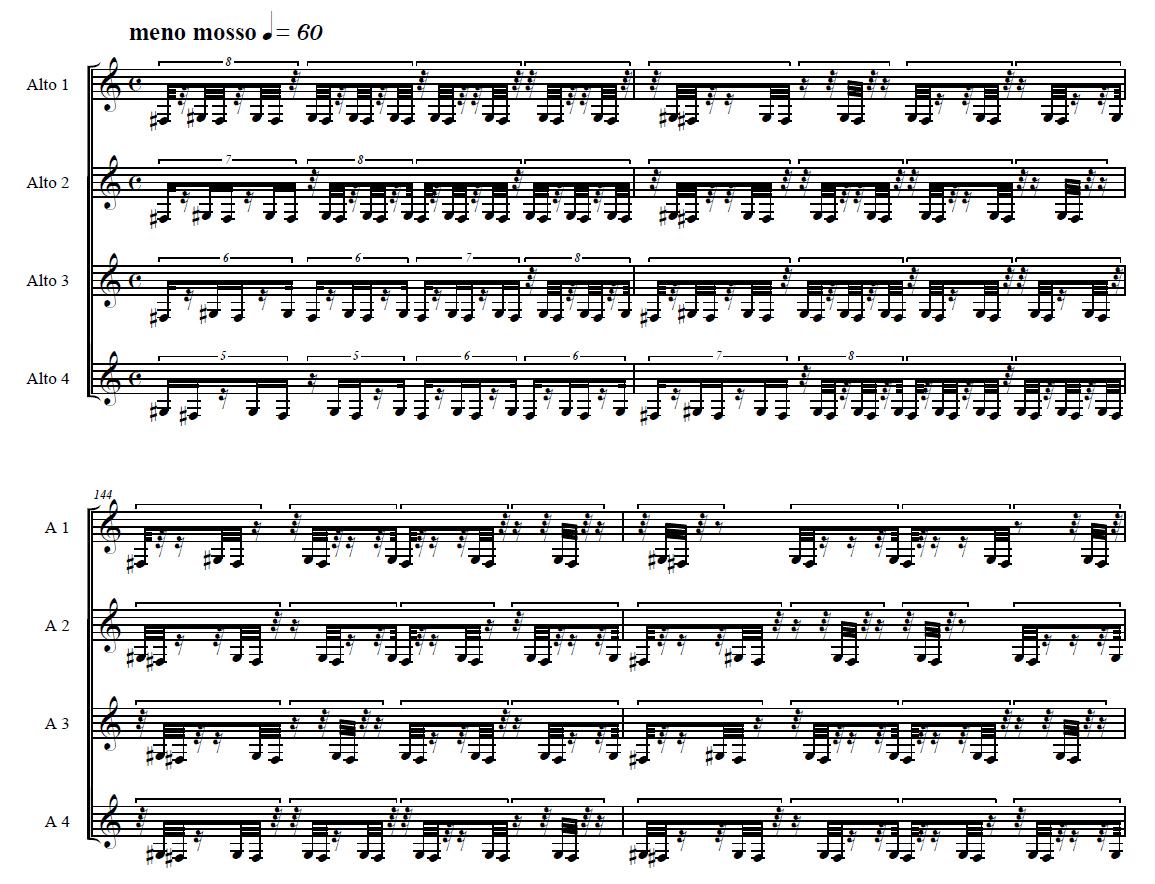The human voice is a funny thing. We singers are often reminded that our voices can have a shelf life…particularly those of us of the female persuasion, since hormones play a big role in vocal production. Now that I have hit the ripe “old” age of 40, I’m making plans of my own for the day when my voice is no longer as much of an asset as it currently is (hopefully that day is very far away!). Continue reading “An Inspiration Without Expiration”
Pinch Hitter
One of the reasons we visit Hawaii regularly is to see my mother, who lives here on Oahu.
Featured Writer – Studio 30+
 I have been asked to write a featured post on the website Studio 30+, which is a gathering place for bloggers over the age of 30. I think I fit in that category nicely.
I have been asked to write a featured post on the website Studio 30+, which is a gathering place for bloggers over the age of 30. I think I fit in that category nicely.
Anyway, as I was trying to come up with topics, there was one thing that I’ve been meaning to write about for a while: the side show that is Jackie Evancho. I have a feeling my singer friends who read it will be nodding their heads in agreement. I’m not so sure about the avid Jackie fans who think she’s a prodigy with a bright future. Please feel free to leave comments, as always!
Also, the video I reference in the article didn’t embed for some reason. Here it is:
Watch the full episode. See more Great Performances.
For those of you who can’t find your way over there (although you should; it’s a great place to find new blogs!), I’ll be reposting the story on this blog after a couple of days.
How Not To Faint On Stage (tips from one chorister to another)
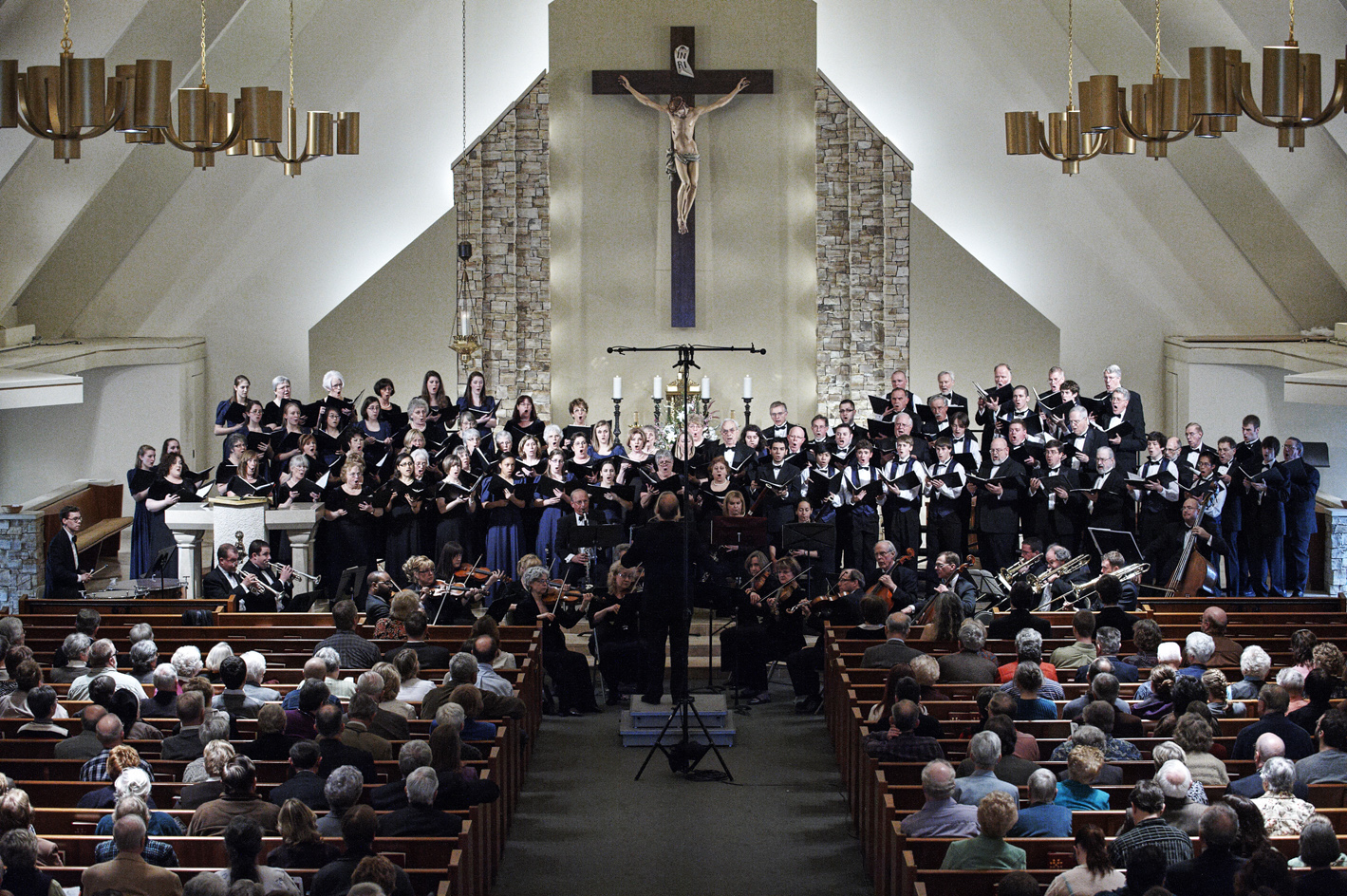
We sang in the sanctuary of a high-ceilinged Frank Lloyd Wright-esque church with acoustics very favorable to the voice, but the “stage” (read: altar) did not lend itself favorably to the size of the group (chorus + orchestra + conductor + soloists). As a result, we soloists sat in one of the front pews, facing the choir and orchestra, until we had to sing. Then we would turn around and face the audience. It was a little awkward, but we made it work.
However, this unconventional seating arrangement offered an opportunity that I haven’t had in a long time: I was able to watch the chorus during a performance.
It was fascinating. I loved watching the immense joy and ecstasy on many of the singers’ faces, but I found my eyes kept wandering to one boy in the front row who looked exceedingly sick. He kept wiping his brow and looking around dazedly. He stopped singing at one point, and I thought for sure he was going to faint.
Immediately, I was hit with a wave of memories. While I was in the San Francisco Girls Chorus, I suffered from concert nausea/fainting quite often. The girls shunned me, the conductor mocked me, and nobody ever really tried to help fix my problem. Year after year, we were taught to stand still, smile, and watch the conductor; yet no adult bothered to ask me what was going on in my mind or in my body that I was suffering from this sickness so consistently.
It was up to me to figure out what worked and what didn’t; sadly, I never learned how to stay healthy during my entire tenure at SFGC. It wasn’t until I went to Tufts and took a few biology courses that I started to figure out what was going on with my own body. After that, I just picked up various tips and tricks along the way, and I thought, for the sake of that boy I saw (and everyone else who has had this problem), I’d share them with you.
Supermaren’s Tips & Tricks for a Healthy Choral Experience:
1. If you feel like you are going to faint or throw up, sit down and put your head between your legs. Standing in a large group of people for an extended period of time can get claustrophobic. If you’re already not feeling too well, those close quarters might be exactly the worst possible thing for your state of health. When you sit down, you are able to 1) get the blood running back to your brain, and 2) get the audience’s eyes and attention off of you.


4. Shift your weight and bend your knees. A lot of times in choral situations, you have to stay standing for a long time. It’s very easy to let your knees lock, and when that happens, it cuts off your blood circulation and leads to vasovagal syncope. I’m not making this up, people. I’ve seen it happen.
All in all, don’t try to tough it out; it’s a concert, not a military excursion. If you faint or get sick on stage you’ll be mortified, and if you just stand there turning green, you’re going to upstage the music.
Do you have other tips on how to stay healthy and upright during performance? Please feel free to add them to the comments below.
The Littlest Bird
Are we all underdogs? Most of the time, I certainly put myself in that position. I have terrible self-esteem (like most artists), so I automatically assume everyone I compete against is better than me. I struggle with my perfectionism constantly, and even when I know that I have achieved quite a bit, I still see myself at the bottom rung of the ladder.
But I always thought this mindset was a strength. I was raised to be modest, to never get a “swelled head,” as my dad put it. And I think that modesty has gotten me far, because it has made me work hard to get ahead, never stopping to rest on my laurels.
This week, I attended a seminar by Dallas Travers with my fellow Divas. Although Dallas works primarily with stage and film actors, much of her message carries over to the singing world as well, and I found myself taking furious notes (that’ll be another post entirely). One thing she said resonated with me more than anything else that night: “Your odds are entirely determined by your expectations.”
Your odds are entirely determined by your expectations.
Underdog, long shot, sleeper: what pessimistic synonyms to describe the person who is least likely to win! No wonder I always feel like I’m on the bottom rung if I have placed myself in this role. There I am, being the submissive dog, rolling onto my back as the winner dominates me. The target is placed so far away I can barely see it, much less pull my arm back on the bow to let the arrow fly. Am I asleep, that the contest is almost passing me by before I awake?
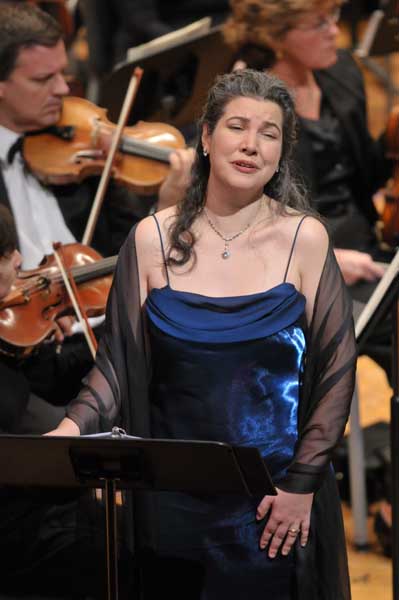 My odds
My odds
are entirely
determined
by my expectations.
This Saturday, I am singing in the semifinals for the Oratorio Society of New York’s solo competition. If I make it through to the next round, I will sing in the finals at Carnegie Hall* on April 2. Instead of looking at my competition and thinking of them as so much better than me, I don’t want to think of them at all. This competition is not about them; it’s about me, and how I expect myself to perform.
So, how should I picture myself now? Am I still the little guy? The dark horse? No, I think I’m the littlest bird who sings the prettiest songs. I’m the artist I have always striven to become, and it only gets better from here. I love singing, and I love bringing music to people. I love my voice, and I think you will too.
But I still won’t mind if you all cross your fingers for me at 1:50 pm on Saturday, March 26.
*don’t even ask how to get there, I’m practicing already.
This post was an Indie Ink Writing Challenge response to this prompt from Jen O.:
Write anything – any genre, fiction or non, any length – around my favourite metaphor: The littlest bird sings the prettiest songs.
You can read Wendryn’s response to my challenge here.
P.S. – In case you’re curious, this is what I sound like: [audio: http://www.supermaren.com/Music/Theodora_Wings.mp3]
The Practice of Practicing
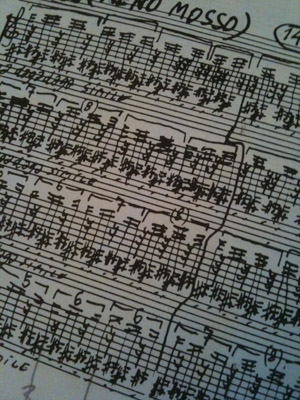
I’m not a fan of reading manuscript, especially in the age of digital music. Even though the score was published by Schott, who normally prints lovely, legible music, I have a feeling there hasn’t exactly been enough demand since its premiere in 1973, for them to go through the trouble of republishing a proper, printed version.
That being said, I think I should be able to at least read what I have to sing. That squiggly line you see going through the staves? That’s the bar line. And with everything so squished together, it’s essentially impossible to see what beat goes where. This is a sight-reader’s nightmare.
After I posted this picture onto Facebook, several of my friends suggested that I transcribe it into Finale to make it more legible. With over 200 measures of 12 staves each, I wasn’t too keen on transcribing the whole thing, but it would certainly help me learn the music if I transcribed some of the harder bits.
Here is the same passage, only legible (click on image to enlarge):
Now that you can actually see it, you may notice that each part only sings two notes: G# and F#. The trick, therefore, is not trying to find the notes themselves, but making sure you sing those notes at the right time. This is what all the parts sound like together:
[audio: http://www.supermaren.com/Music/Clocks_Clouds_excerpt_piano.mp3]It’s not so easy to tell which part is yours, is it? In situations like this, I like to use a feature on Finale that changes the instrument a particular staff is playing. Since I’m singing Alto 2, I’ve switched my part to “Oboe,” and all the other parts to “Choir Aahs” (very cheesy MIDI sounds, I know, but they do the trick). This is what the same passage sounds like, only with my part pulled out of the texture:
[audio: http://www.supermaren.com/Music/Clocks_Clouds_excerpt_oboe.mp3]I practice like this all the time when I’m at my computer, especially with difficult passages like this. I can also turn on a click track to remind me where the beats are, and I can play different passages at different speeds, depending on what I want to target during my practice session.
I don’t only use this technique with difficult-to-read music; I am also a terrible pianist, and I can’t afford to pay a coach every single time I want to rehearse something with accompaniment, so I use Finale to practice my regular rep as well (I’ve written about my accompaniment tracks here).
I do happen to have several very useful skills in the singing world: 1) I’m a good sight-reader, and 2) I have perfect pitch. That means that most of the time, I can show up to the first rehearsal, pick up the music, and sing what’s on the page without very many mistakes the first time around. But I’m certainly not perfect, and when I can get prepare my part ahead of time, it makes the entire rehearsal process go more smoothly.
So, that’s my “process,” such as it is. Feel free to ask questions in the comments section. And if you’re just starting out and need some advice: learn how to sight-read. That one skill will make you ten times more marketable than any other tool in your vocal toolbox.
Working on Mahler
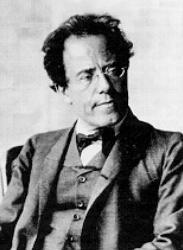 So I had all these grand plans about posting a day-by-day journal of my trials and tribulations learning Mahler’s Ruckert-lieder for my concert with the Delaware County Symphony this Sunday. But then life intervened, and I spent more time actually learning the music rather than writing about the process.
So I had all these grand plans about posting a day-by-day journal of my trials and tribulations learning Mahler’s Ruckert-lieder for my concert with the Delaware County Symphony this Sunday. But then life intervened, and I spent more time actually learning the music rather than writing about the process.
So, suffice it to say: this concert is my first professional solo experience with an orchestra. I’m 35 years old and I’ve performed solos in front of a big band, in opera houses, and with choruses, but never just me and an orchestra, and it’s kind of nerve-wracking. I’ve got the music memorized, but it’s still a little shaky, and I’m worried I’ll forget as soon as I start listening to the orchestra instead of the recordings I’ve been practicing with. Maybe I should hold the music just in case? Would that look bad? I think it would look worse if I completely forgot all the words in front of a full audience!
I’ve got a dress rehearsal tomorrow, and I’ve promised to put my book down for that rehearsal. We’ll see how it goes. I’d love to be able to have it down cold, but my brain hasn’t gotten to that point yet…
Either way, this is good practice, because the next opportunity I will have to sing with a full orchestra will be in November for Verdi’s Requiem with the Lancaster Symphony Orchestra. Masses and cantatas don’t require soloists to memorize their music, but I certainly would rather have my head out of the music as much as possible.
Keep your fingers crossed.
Podcasting
Until this summer.
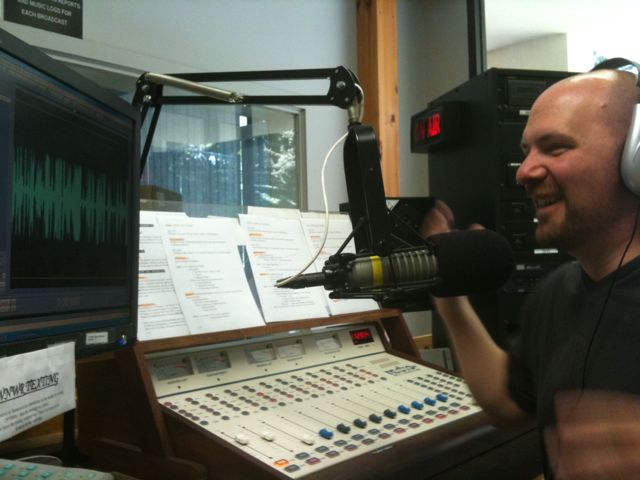 That’s when Mike Bolton (no, not that one) from the Opera Company of Philadelphia asked me to co-host In Tune, the podcast for OCP’s upcoming productions.
That’s when Mike Bolton (no, not that one) from the Opera Company of Philadelphia asked me to co-host In Tune, the podcast for OCP’s upcoming productions.
So I sat down in the studio and recorded podcasts for the operas in the 2010-11 season: Otello, Romeo & Juliet, Tosca, The Cunning Little Vixen, and Phaedra.
What fun I had! Mike and I were very comfortable around each other, and we managed to get everything recorded in two sessions.
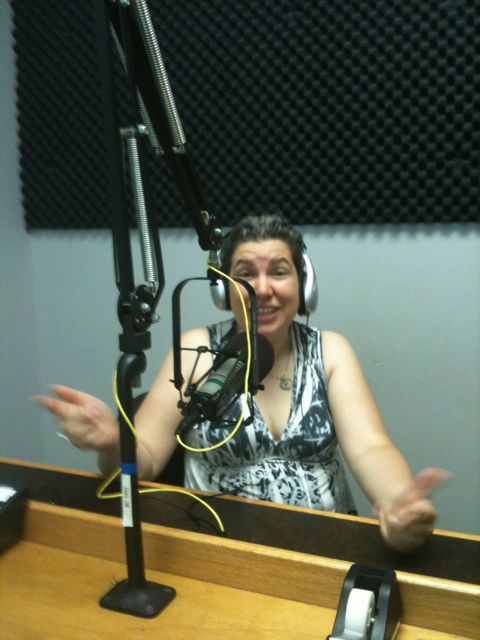
Anyway, if you are interested in listening to the podcasts, go to the OCP website and download the sound files. I guarantee you’ll learn some cool things about opera!
[audio: http://www.operaphila.org/community/otello-podcast.mp3]
Where Everybody Knows Your Name
The actors came over, and we all sat around the dining room table with our scripts, munching on some fruit and reading through the play. When we were done, my cousin (who will be directing the show) joked that the first rehearsal will be in New Jersey, because they need to cast me in the role. All the other actors agreed, which was very flattering, since I haven’t been in a play in a very, very long time! As they left, they all promised to come to the bar that night for the show my cousin was putting together.
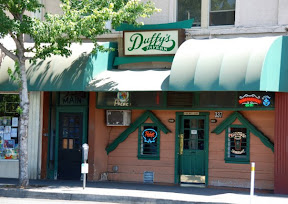 As I mentioned in my previous post, my cousin owns a bar in downtown Chico. It’s a small town, so pretty much everyone knows who he is, and anyone who doesn’t know him personally definitely knows Duffy’s Tavern.
As I mentioned in my previous post, my cousin owns a bar in downtown Chico. It’s a small town, so pretty much everyone knows who he is, and anyone who doesn’t know him personally definitely knows Duffy’s Tavern.
Since he owns the place, he was able to bump the Irish band that usually plays there on Friday nights in favor of putting his two cousins (and himself) on the stage. He made a few phone calls to put together an impromptu band, then invited the cast of a show he is in (Go-Go, a British Invasion musical) to perform some of the songs from the show. He sent out a huge email blast, and we were all set to perform during happy hour.
My dad and I leafed through his Fake Book to find some appropriate songs to perform. I decided on “I Get A Kick Out Of You,” my dad picked some songs too, and we sent the lead sheets to the band leader so he could take a look at it before the gig.
When we got to the bar at 4:00, the place was pretty empty. The band leader was setting up the stage, and a long-haired blond kid named Loki (I kid you not, that is his name) was tuning his guitar as well. Loki hugged my cousin and stared at me like he was seeing an angel. I felt slightly creeped out, but decided not to mention anything because he seemed pretty harmless (I found out later that he had dropped acid that afternoon and was tripping the entire night, which explains a lot).
I looked around asked where the drums and keyboards were, and I was told that my cousin couldn’t get anyone on drums or keyboards at such short notice, so we were stuck with three guitars (another guitarist showed up a few minutes later) and no microphones. I wasn’t too concerned about the lack of mics for me in such a small room — I can make a big sound when I want to — but acoustic guitars are quiet instruments by nature, and I was worried no one would really be able to hear the chords under the melody.
But we had to make do with what we had, so the guitars started playing, and then they invited different people to come up and sing: Samantha, a talented belter in the cast of Go-Go; Kelly, a friendly bass (also in the cast of Go-Go); my dad; me; and my cousin. I only had the one song, whereas everyone else had two or three. I guess I probably could have prepared more songs, but I didn’t know what the scene would be like, and doing jazz (especially with my jazz trumpeter dad) always makes me a little shy and self-conscious.
It’s a good thing that I sang in the first set, because after 5:00, the bar started getting really crowded and loud. My dad sang another song and played his trumpet and flugelhorn while Kelly sang a few numbers. My cousin got up with the cast of Go-Go and started singing songs from the show. As the crowd got louder and louder, the singers couldn’t hear the guitars hardly at all, and everyone was trying to belt really loudly to be heard over the din of the bar. My cousin got the bright idea of getting the audience to sing along, which worked quite well, although the guitars were still inaudible. But everyone was having a great time, and that’s what counts.
Happy Hour was over at 7:00, and my dad and I went back to the house, leaving my cousin to chat with his customers. When my cousin came back home, we all ordered Chinese food and hunkered down with a movie for our final evening in Chico.
It’s Always Sunny…er, SNOWY…in Philadelphia
That night turned out to be lots of fun. The concert was well-attended for blizzard conditions, and after the show a group of us singers went back to the hotel for some dinner and drinks. The next morning ApatheticAlto and I had breakfast at Little Pete’s diner before church.
 Two weeks ago, warnings of another winter storm were blanketing the airwaves, and because we were involved in performances over the weekend when the storm was supposed to hit the hardest, ApatheticAlto and I decided to share another hotel room, this time for two nights.
Two weeks ago, warnings of another winter storm were blanketing the airwaves, and because we were involved in performances over the weekend when the storm was supposed to hit the hardest, ApatheticAlto and I decided to share another hotel room, this time for two nights.
Friday night was fun; going to the hotel bar after our performance and knowing we didn’t have to drive anywhere led to a little overindulgence, the effects of which ApatheticAlto acutely felt the next morning. Nevertheless, we had been invited to a waffle breakfast by some friends only 6 blocks away, so we bundled up and ventured forth into what looked Philadelphia if it had been transported onto the planet Hoth.
Most of the streets had not yet been plowed, and the snow fell quietly as we made our way through the drifts, sometimes walking on a well-salted, shoveled sidewalk, sometimes walking in a plowed street, and then finally giving up and tromping through the knee-deep snow. Once we arrived at our friends’ house, we decided we didn’t want to leave until much later in the day, because the snow was falling steadily, about an inch per hour. Later that afternoon, we found out that the orchestra canceled that night’s concert because the weather was so bad that SEPTA was closed and there was no way for even the orchestra members to get to the concert.
Though we were disappointed by the turn of events (cancellation because of force majeure means we didn’t get paid for the concert, and we still had to pay for two nights at the hotel), we made the best of our situation, and we all went out to dinner at an Italian bistro. I offered to sub for the other alto at ApatheticAlto’s church on Sunday, so I did make at least a little money while I was in town.
 Since that storm two weeks ago, Philadelphia hasn’t really been able to dig itself out. Another blizzard found its way to our doorstep Feb. 9-10 (Tuesday and Wednesday), destroying my plans to go down to Baltimore and sing songs from my recital for composition majors at Peabody (I know, that sounds totally boring to you, but it was a big deal for me). It started snowing again last night, and as of the time I’m publishing this post, it hasn’t stopped. The weather people say it’ll be another 4-8 inches, which isn’t very good news in a town that is used to only a couple inches of snow a year. Luckily, my dinky little NJ township suburb has been doing a better job plowing its streets than Philadelphia, but operations seem to have ground to a halt because of the snow.
Since that storm two weeks ago, Philadelphia hasn’t really been able to dig itself out. Another blizzard found its way to our doorstep Feb. 9-10 (Tuesday and Wednesday), destroying my plans to go down to Baltimore and sing songs from my recital for composition majors at Peabody (I know, that sounds totally boring to you, but it was a big deal for me). It started snowing again last night, and as of the time I’m publishing this post, it hasn’t stopped. The weather people say it’ll be another 4-8 inches, which isn’t very good news in a town that is used to only a couple inches of snow a year. Luckily, my dinky little NJ township suburb has been doing a better job plowing its streets than Philadelphia, but operations seem to have ground to a halt because of the snow.
I don’t remember being as concerned about the snow when I went to school in Boston. Maybe it’s because the winters were always very snow-heavy, and people had learned to adapt. Perhaps I didn’t notice it as much because I didn’t have to drive in the stuff. But I have to say, I’m not much of a snow bunny, and these past two weeks have had both me and Ray pining for Hawaii in a big way.



